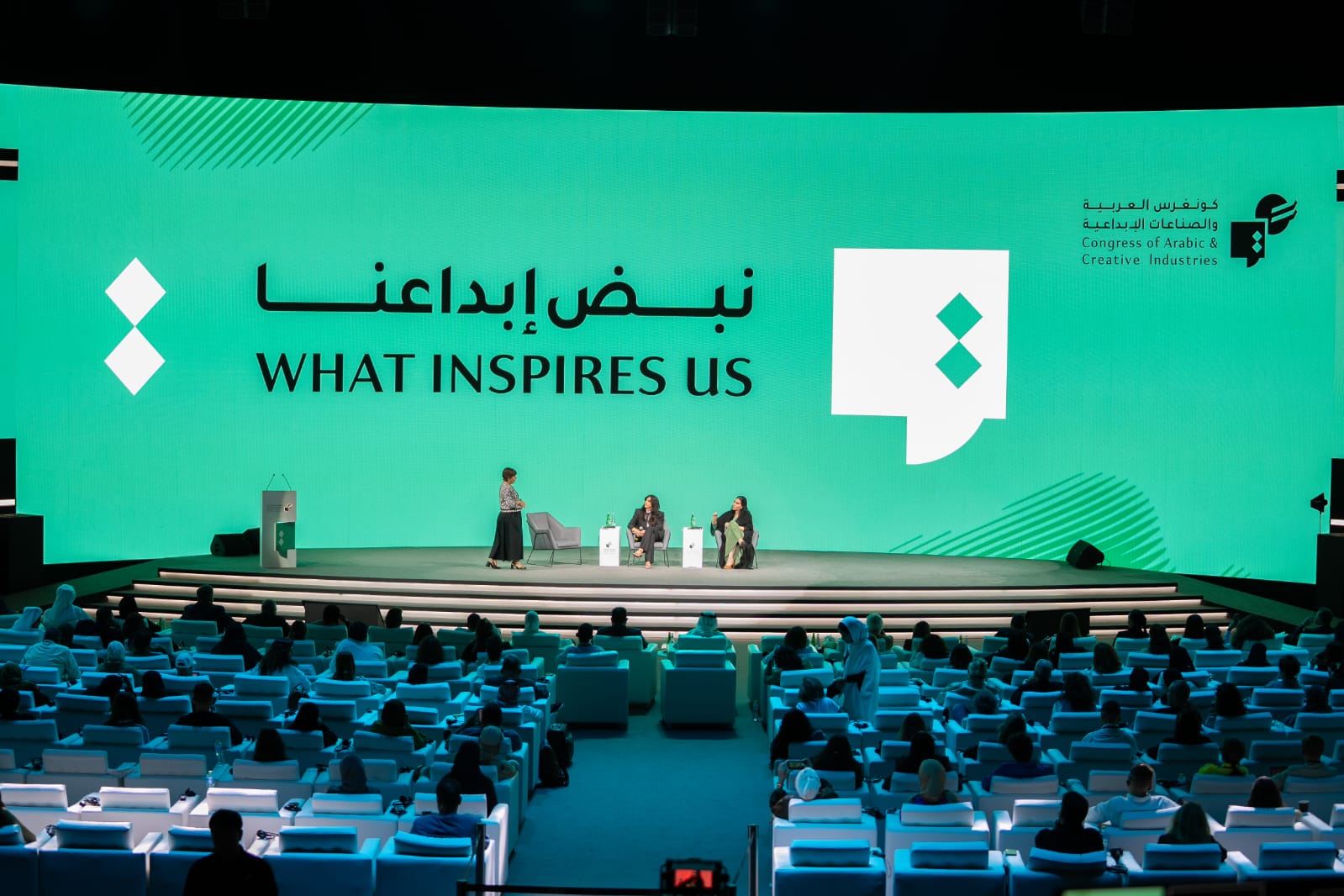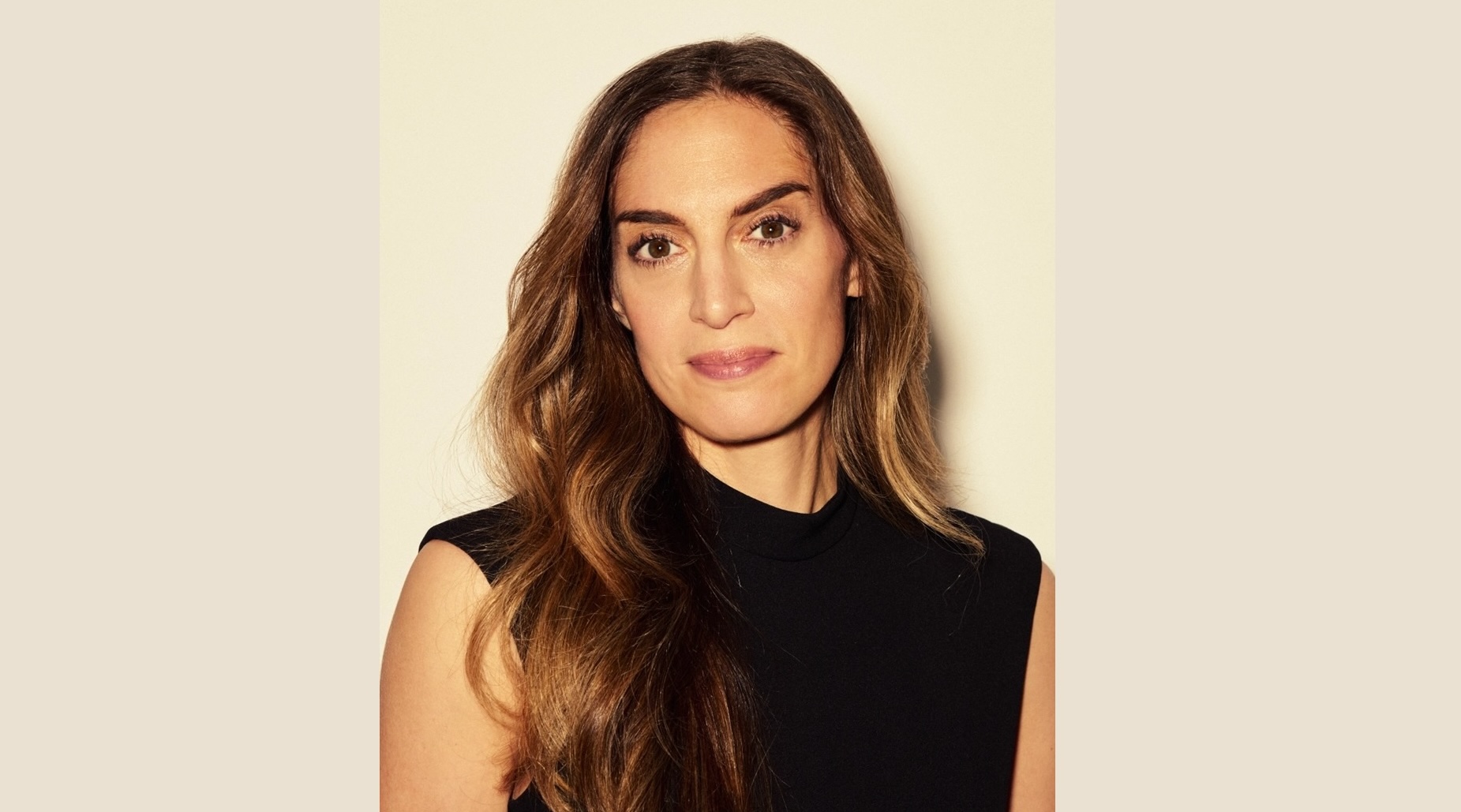News - News In Brief
Rasha Khalifa Al Mubarak Pushes Arabic Music to the Forefront of the Global Creative Economy
by Gaya Salam
September 16, 2025
.jpg) Advertisement
AdvertisementArabic music must stand as both a keeper of heritage and a driver of innovation if the region’s creative industries are to claim their rightful global standing. That was the message from Rasha Khalifa Al Mubarak, Chairwoman of Music Nation, during her participation in the Congress of Arabic & Creative Industries held September 14–15 at Etihad Arena, Abu Dhabi.
Appearing on a high-profile panel alongside Lebanese acclaimed filmmaker and actress Nadine Labaki and moderated by Caroline Faraj, Editor-in-Chief of CNN Arabic, Al Mubarak underscored the dual role of music: cultivating cultural pride at home while connecting Arab creativity with international audiences.
“When a song reflects our identity, stories, and experiences, it nurtures belonging locally,” she said. “These narratives then transcend borders, resonating globally with audiences of diverse cultures.”
Al Mubarak also stressed that protecting creators’ rights is the cornerstone of a sustainable music ecosystem. Through Music Nation’s global partnerships with BMI and SoundExchange, the organization provides fair compensation and international access, ensuring Arab music can compete on a global scale without losing its authenticity. This, she emphasized, is in line with the UAE Vision 2031 and the country’s National Strategy for Cultural and Creative Industries (CCI).
Now in its fourth edition, the Congress continues to grow as a premier platform spotlighting Arab creativity.
This year’s edition welcomed influential cultural figures including Mohamed Khalifa Al Mubarak, Chairman of Abu Dhabi’s Department of Culture and Tourism, Ali Bin Tamim, Chairman of the Abu Dhabi Arabic Language Centre, actress Hend Sabry, and Palestinian-American comedian Mo Amer, among others.
For Music Nation, the platform comes at a pivotal moment. Earlier this year, the company received a Collective Music Organization (CMO) permit from the UAE’s Ministry of Economy and Tourism, making it the first in the country authorized to manage music rights, collect royalties, and enforce intellectual property compliance. This positions the UAE as a leader in institutionalizing copyright protection and building a professionalized music economy.
Arabic music is often celebrated for its cultural depth, but Al Mubarak’s intervention at the Congress highlights the urgency of infrastructure: rights management, licensing, and fair compensation. These are the invisible levers that will determine whether Arab music remains a heritage treasure—or evolves into a global industry with true economic weight.
The UAE’s regulatory framework and initiatives like Music Nation’s licensing partnerships suggest the region is finally laying the groundwork for music not just as an art form, but as a serious creative economy.



.jpg)







